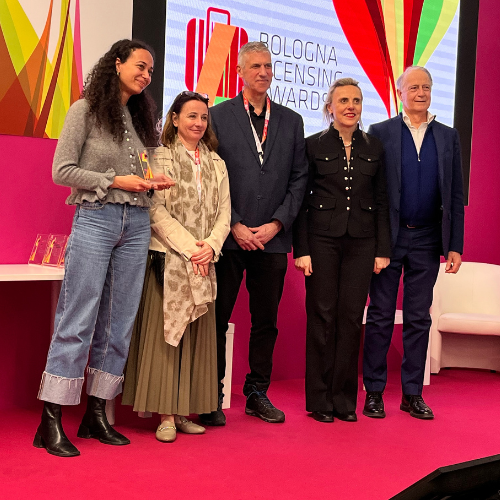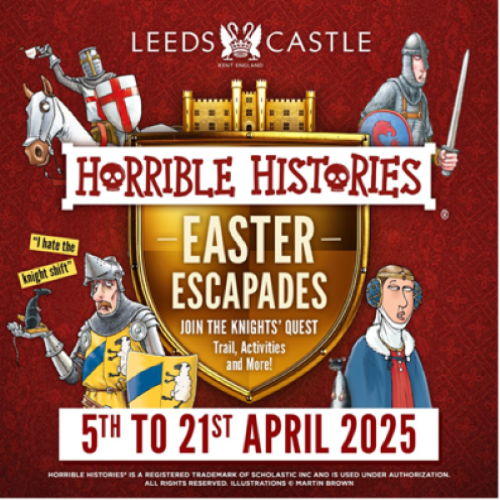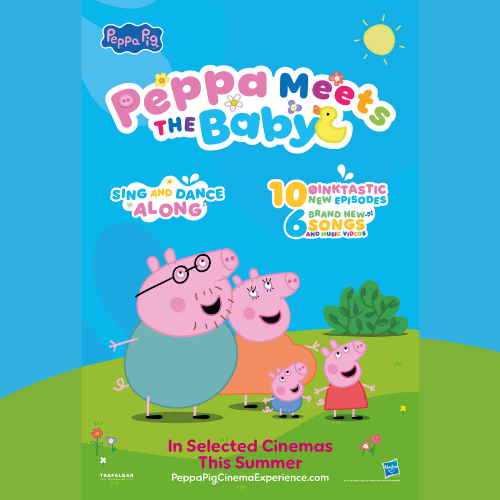Start Licensing’s Ian Downes on why it is difficult to pigeonhole things in the current climate.
I am sure most of us that work in licensing have been asked to explain what our job entails. My stock answer is to say I work in a Mickey Mouse business and quickly explain how a Mickey Mouse t-shirt happens. This explanation is effective but is getting a little dated so I have been delighted to see how high street optician Specsavers has embraced licensing. I now use it as my go to example to explain the business of licensing.
Specsavers is a company that uses licensing across different product ranges and age profiles. Currently it is promoting a Disney Mickey Mouse range prominently in the windows. This is linked to Mickey’s 90th anniversary. This anniversary seems to have been leveraged well by Disney and it has pulled together a number of interesting partnerships. Anniversaries offer brand owners a good opportunity to shine a light on a brand, coupled with a chance to kickstart things. I am currently working with Aardman on Wallace and Gromit’s 30th anniversary which is next year.
A lot of planning has gone into it to deliver a range of activities, new design resources and opportunities for licensees. Anniversaries are opportunities but ones that need to be proactively managed.
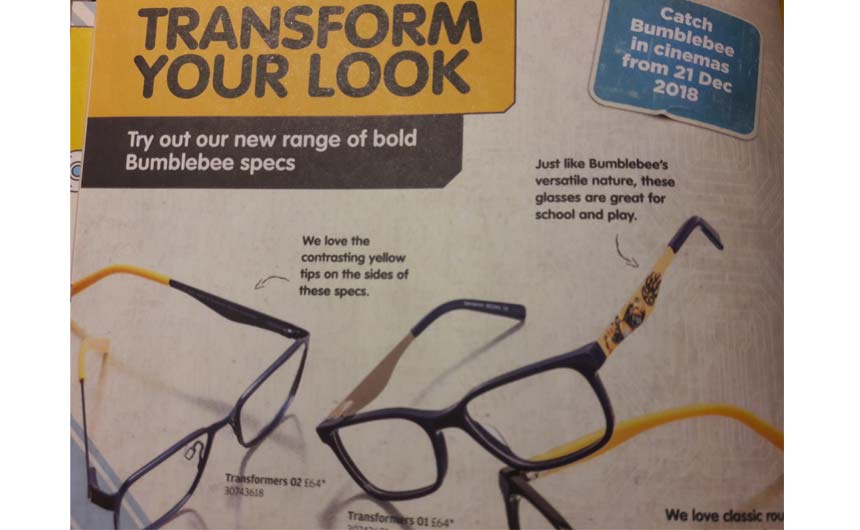
Returning to Specsavers, it uses a variety of marketing techniques to engage with consumers and licensing is intertwined with this. It is well known for its TV commercials and strap line, but it invests in window displays and also produces a couple of customer magazines. One is Specsavers for Kids. This combines some product information with activity pages and competitions for children.
The current issue highlights a new range of products featuring the Transformers movie Bumblebee and the issue is themed around this. Here Specsavers is making the most of a high profile movie adding some new dynamics to the product offering. I imagine it manages the inventory carefully and it is a time limited range.
For the film, this partnership has created a fresh communication platform and opened up some new retail space. Other children’s brands that Specsavers currently sells include JCB, a perfect brand for tough and durable spectacle frames. It also sells Mulan, Winnie the Pooh and The Gruffalo.
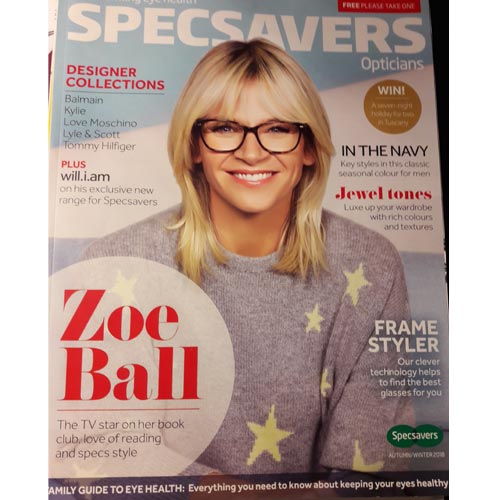
Specsavers also publishes a magazine aimed at adults. The cover star of the current issue is Zoe Ball. A good example of how it uses celebrity spectacle wearers to promote the products. Other personalities it features in specific promotions about particular topics include Eamonn Holmes, Louise Redknapp and Hairy Biker Dave Myers. This is an example of how brands are tapping into the celebrity market and using celebrities as voices for specific campaigns.
Specsavers has recognised that spectacle frames can be fashion wear and trend driven. With this in mind it has a track record of working with designers and brands.
Current brands featured include Red or Dead – this product is interchangeable whereby the arms and frames of the spectacles can be changed allowing the wearer to mix up colourways and designs. It also has strong links with celebrities like Kylie Minogue and Will.i.am who have curated and designed collections. The celebrities talk about their designs and collections adding gravitas to the partnerships. Other featured brands include fashion brands Lyle & Scott, Karen Millen and Balmain. This theme extends to ranges with Tommy Hilfiger, Hackett, Quiksilver and Cath Kidston.
Fashion licensing is obviously a good route for Specsavers. I think it licences a lot of things directly, but I imagine it also tops up the offer by stocking product from licensees. The latter approach would allow it to respond to new trends and styles.
Specsavers is a really good example of how licensing is playing a role in different types of businesses and products. A reminder to us all that new business can be developed in genuinely new ways.
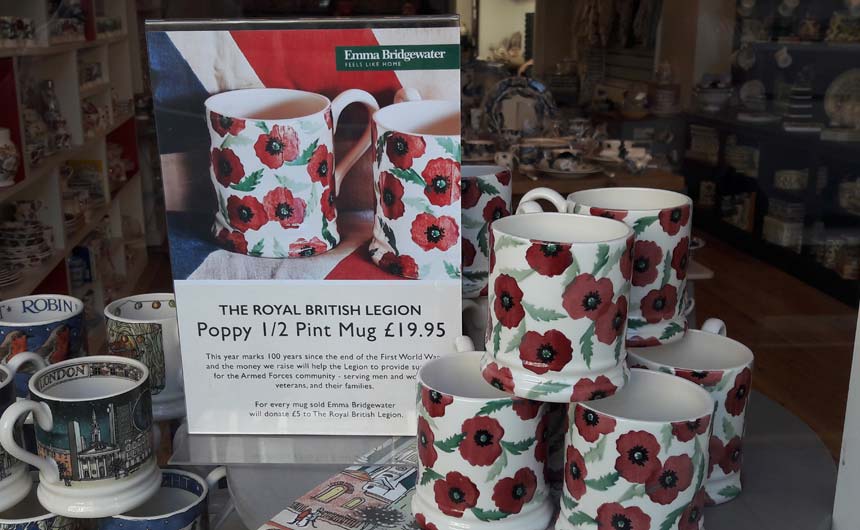
As we approach Remembrance Sunday, there have been more examples of licensed products and partnerships between brands and the Royal British Legion featuring the iconic poppy. One clever and timely product are pin badges produced in partnership with football clubs. I think this official programme will reassure fans that they are buying official merchandise with money flowing back to the Legion.
I bought my Millwall Poppy badge directly off the Legion website although they were on sale in the club shop as well. Apparently they sold out on the first day in-store so more were ordered. One aspect of official licensing campaigns we can overlook is illustrated by this example. Officially licensed or produced products can be a great reassurance to consumers.
I think these football club Poppy badges are a very smart move by the Legion, not least as there seems to be a plethora of pun badges on the market.
The other Royal British Legion Poppy product I thought stood out was a half pint mug from Emma Bridgewater. £5 from purchase of the mug goes to the Royal British Legion. The design features poppies designed in the signature Emma Bridgewater style. It is a lovely product that has a real keepsake quality to it and one that befits the brand it features.
It is hard for organisations like the Legion to strike a balance between raising funds and quality controlling the use of their brand. In this case I think it is a really effective partnership and it has created a product that works really well in a unique retail channel.
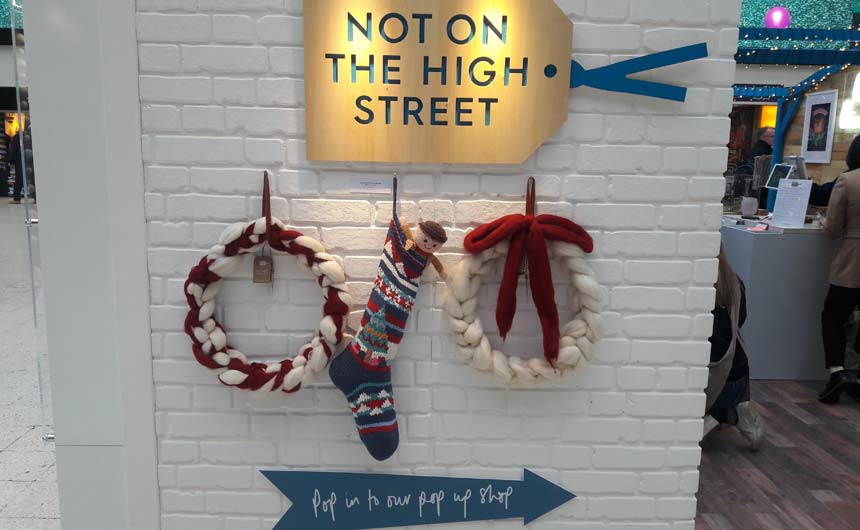
Finally, I think we are all finding the retail market challenging and confusing at the moment. One piece of activity I spotted this week added to my confusion but is probably a sign of the times – the times being that retailers need to find new ways of engaging with consumers and achieve cut through.
I saw online retailer Not on the High Street not quite on the high street, but on the station concourse. It had a pop up retail unit at Waterloo Station. I think this shows that retail is rapidly changing and it is difficult to pigeonhole things.
An open minded approach to selling and reaching consumers is probably the right mindset at the moment and remembering retail examples like Specsavers which show that licensing can be a valuable tool in a confused retail market if used wisely.
Ian Downes runs Start Licensing, an independent brand licensing agency. His Twitter handle is @startlicensing – he would welcome your suggestions for what to look out for.












